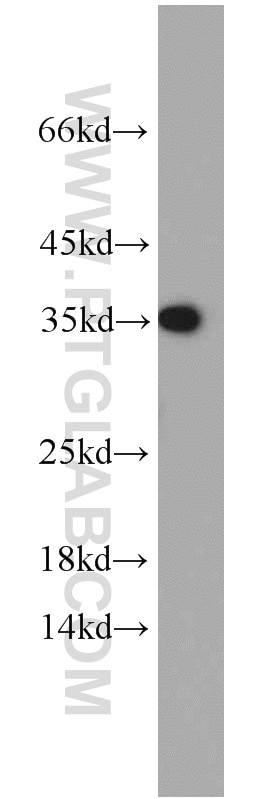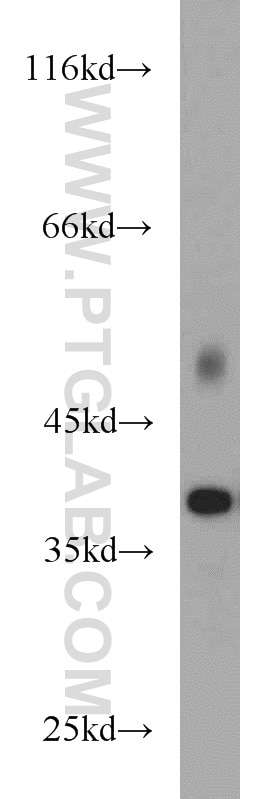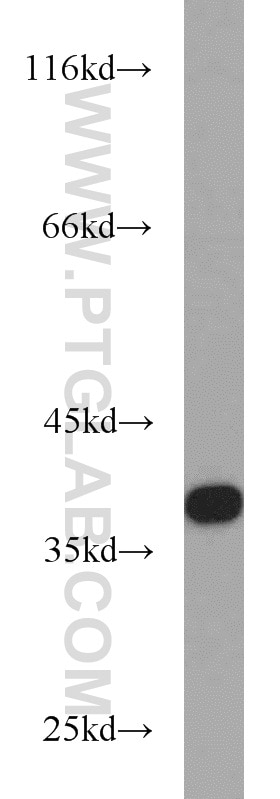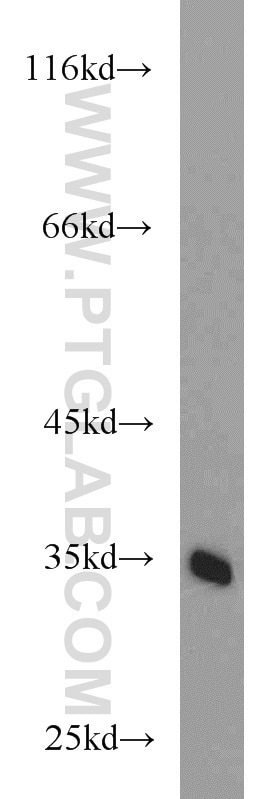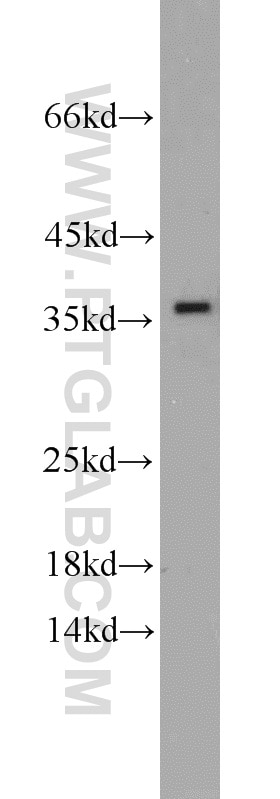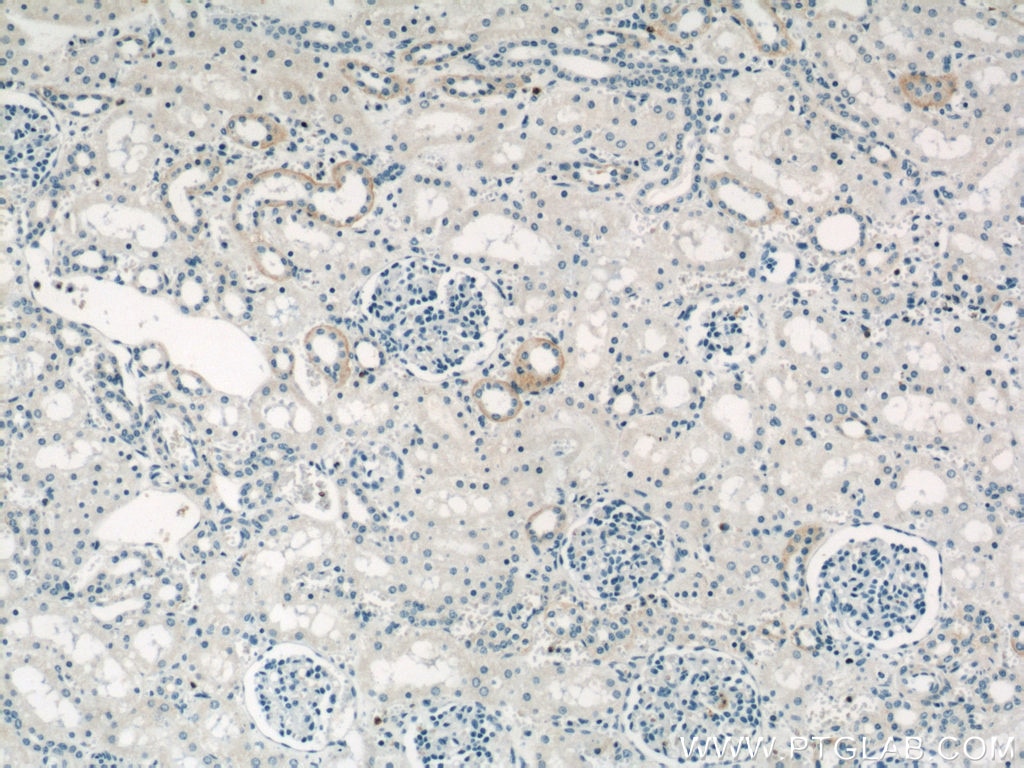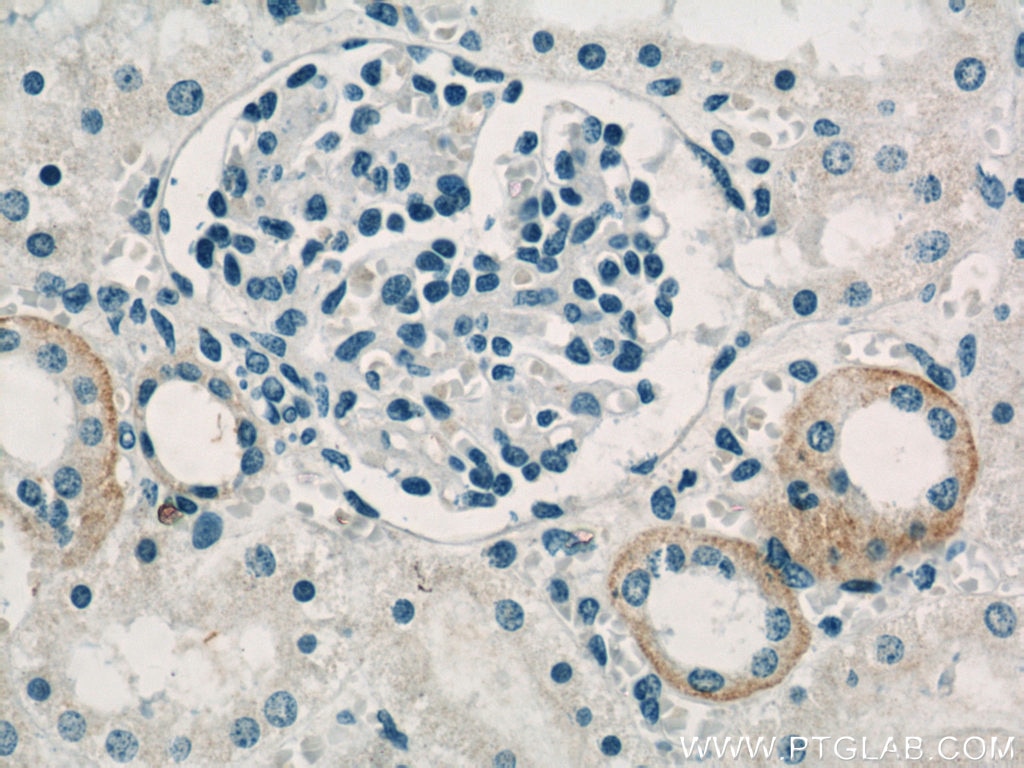Anticorps Polyclonal de lapin anti-PRKACB
PRKACB Polyclonal Antibody for IHC, WB, ELISA
Hôte / Isotype
Lapin / IgG
Réactivité testée
Humain, rat, souris
Applications
WB, IHC, ELISA
Conjugaison
Non conjugué
N° de cat : 55382-1-AP
Synonymes
Galerie de données de validation
Applications testées
| Résultats positifs en WB | tissu cérébral de souris, tissu cérébral humain |
| Résultats positifs en IHC | tissu rénal humain il est suggéré de démasquer l'antigène avec un tampon de TE buffer pH 9.0; (*) À défaut, 'le démasquage de l'antigène peut être 'effectué avec un tampon citrate pH 6,0. |
Dilution recommandée
| Application | Dilution |
|---|---|
| Western Blot (WB) | WB : 1:500-1:1000 |
| Immunohistochimie (IHC) | IHC : 1:20-1:200 |
| It is recommended that this reagent should be titrated in each testing system to obtain optimal results. | |
| Sample-dependent, check data in validation data gallery | |
Applications publiées
| WB | See 15 publications below |
| IHC | See 3 publications below |
Informations sur le produit
55382-1-AP cible PRKACB dans les applications de WB, IHC, ELISA et montre une réactivité avec des échantillons Humain, rat, souris
| Réactivité | Humain, rat, souris |
| Réactivité citée | rat, Humain, souris |
| Hôte / Isotype | Lapin / IgG |
| Clonalité | Polyclonal |
| Type | Anticorps |
| Immunogène | Peptide |
| Nom complet | protein kinase, cAMP-dependent, catalytic, beta |
| Masse moléculaire calculée | 46 kDa |
| Poids moléculaire observé | 36-55 kDa |
| Numéro d’acquisition GenBank | NM_002731 |
| Symbole du gène | PRKACB |
| Identification du gène (NCBI) | 5567 |
| Conjugaison | Non conjugué |
| Forme | Liquide |
| Méthode de purification | Purification par affinité contre l'antigène |
| Tampon de stockage | PBS avec azoture de sodium à 0,02 % et glycérol à 50 % pH 7,3 |
| Conditions de stockage | Stocker à -20°C. Stable pendant un an après l'expédition. L'aliquotage n'est pas nécessaire pour le stockage à -20oC Les 20ul contiennent 0,1% de BSA. |
Informations générales
PRKACB, also named as PKA C-beta, belongs to the protein kinase superfamily. AGC Ser/Thr protein kinase family and cAMP subfamily. It mediates cAMP-dependent signaling triggered by receptor binding to GPCRs. PKA activation regulates diverse cellular processes such as cell proliferation, the cell cycle, differentiation and regulation of microtubule dynamics, chromatin condensation and decondensation, nuclear envelope disassembly and reassembly, as well as regulation of intracellular transport mechanisms and ion flux. This antibody is specific to PRKACB.
Protocole
| Product Specific Protocols | |
|---|---|
| WB protocol for PRKACB antibody 55382-1-AP | Download protocol |
| IHC protocol for PRKACB antibody 55382-1-AP | Download protocol |
| Standard Protocols | |
|---|---|
| Click here to view our Standard Protocols |
Publications
| Species | Application | Title |
|---|---|---|
Environ Int Exposure to dithiocarbamate fungicide maneb in vitro and in vivo: Neuronal apoptosis and underlying mechanisms | ||
Int J Mol Sci Per1/Per2 Disruption Reduces Testosterone Synthesis and Impairs Fertility in Elderly Male Mice. | ||
Oncogenesis GSK3β palmitoylation mediated by ZDHHC4 promotes tumorigenicity of glioblastoma stem cells in temozolomide-resistant glioblastoma through the EZH2-STAT3 axis. | ||
Pharmacol Res Hypericin attenuates nonalcoholic fatty liver disease and abnormal lipid metabolism via the PKA-mediated AMPK signaling pathway in vitro and in vivo. | ||
Am J Cancer Res Different lipid metabolic profiles and their associated genes in sessile serrated adenoma or polyps compared to hyperplastic polyps. | ||
Viruses ICP4-Associated Activation of Rap1b Facilitates Herpes Simplex Virus Type I (HSV-1) Infection in Human Corneal Epithelial Cells |
